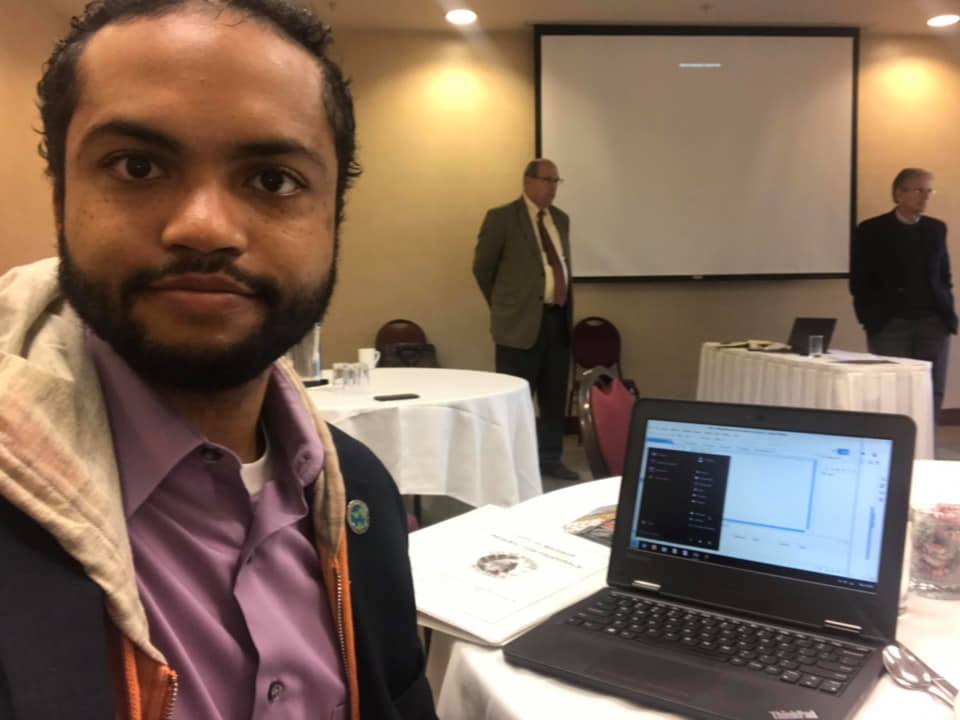
Cyber Rules and Methods for the 21st Century
Blog 01 December 2018
You almost need to imagine that [there is no spoon.] If you don’t get that reference then it’s time to delete your social media and email and renew your library card or go to the movies more. There is no place you can go on the Internet that is not being tracked. In fact even small businesses not directly allied to information technology are making it their business to track incoming traffic. They are collecting data on mouse clicks/position, IP addresses, time on a page, scrolls, return visits, the website/page you visited before and after theirs…..Pretty much everything you do on the Internet is logged. It’s no wonder so many millennial view social media as a digital soap box.
And why shouldn’t they? Over the last several months we have learned from tech CEO Mark Zuckerberg, about the practices of companies like Facebook. We have also learned that that same company uses their users data to do things like place more targeted advertisements, and scarily may even influence a political view. Statements, messages, and other posts are shared with law enforcement, and other companies sometimes at a price. You even authorize them to use your location. Nothing on the Internet is private – I read in somebody’s comment – Anything I post on the Internet is what I the public to know.
Companies have several very good reasons for tracking their server analytics, sure it helps them sell more products but more importantly it helps them detect threats and implement systems to safe guard their data. What is one to do on this new frontier?
Again, if you are not well versed in the movie the Matrix, and missed all the fake skepticism that came with Y2K, then enjoy your rock roof. The safest thing one can do is to stay off-line. If that option is too much of a foil hat not being viable for the working class population, then it is time to learn how to safeguard your information as best as possible.
Now I could do the blog thing where I make a list of [TOP 10 Things You Can Do To Blah Blah Blahhh.] Or I can write actual articles on my web-log website. I choose the later to dive deeper in the subject matter. I am choosing to start with a paper on emails. Chances are that you have an email address if you’re reading this. You need to have an email address in order to register for social media services such as Twitter, or Linked In. It used to be the case that the service you signed up for itself wanted you to be a member of their email service in order to join. Remember American On Line (AOL) CDs coming in the mail?
While AOL is more like LOL today, it changed the way we looked at email. They sold you on ease and security, and while hack attacks were not as wide spread as the amount of phishing email attacks we hear about on a regular basis today, the sheer amount of SPAM and unrequested junk mail, and vicious advertisements turned AOL into a service for the elderly. Still no one will forget the icon “You’ve Got Mail,” voice as it was popularized in that Meg Ryan, Tom Hanks movie.
One really great thing did come out of AOL which I am sure the lot of us can agree and that was AOL’s Instant Messenger. Instant messaging is a subject for a later blog. Let’s cut to the chase. How to email?
It’s simple. Have an email for personal, work, and school. Do not mix these baskets. Use your personal email only for social media accounts activation, that way in the event you leave your job and your email account is deactivated you still have the ability to reset your password. Choosing passwords is extremely important. Use a strong password on all accounts and rotate if necessary. Some workplace environments require a password change every 60-90 days, a great practice for the 21st Century.
Do not give your password to anyone. Write down on a piece of paper and put it somewhere safe from prying eyes. On a similar token, do not give out your email address in an inorganic fashion. Do not fill out forms that you won’t remember, sign up for multiple mailing lists that don’t really matter to you, or even post your email address on line. Your email address is like your home address and you don’t want to give it away frivolously. What you are in fact protecting yourself from is the email misuse. Similar to how someone could illegally place a fake returning address on a letter addressed to you in the snail mail, people are capable of spoofing your email address to send messages as you. Pretty scary stuff!
It’s no worries, because if you have an untainted email account and you don’t give away your address wily-nilly you shouldn’t have to worry. What I mean about untainted email account, is an account were all messages, sent and received, are preserved. You shouldn’t have to delete any messages in your account save for the perhaps the clear SPAM and junk messages.
Next, you should be very careful of what messages you open. Never open an attachment that you are not organically informed of. Make sure that the person sending you the attachment is a trusted individual and that you were made aware of the incoming message by voice. This is because a compromised system could send your a verification from a compromised system, and sending your malicious mail containing a virus.
Finally, keep your email mailing lists subscriptions to a minimum and make sure to read the rules fully of the group. Some mailing lists are made public online and post every correspondence publicly as well. Your information on the Internet is safeguarded, it’s not going anywhere….
For more Cyber Tips for the 21st Century keep checking my blog.
